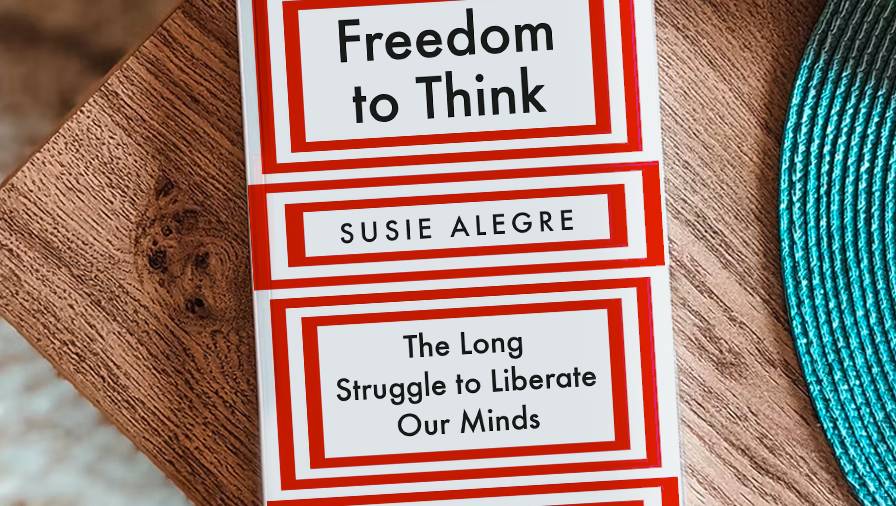Two major changes in international politics and economics at the end of last century suggest one generation does not necessarily learn from the one before it.
The end of the Cold War and the lifting of the Iron Curtain in Europe gave ‘progressive’ socialists the freedom to criticise capitalism without the taint of communism.
In economics, neoliberalism allowed monetary policies that favoured growth and globalisation, even in countries where the yoke of communism had not been removed.
Both spurred hopes they would converge into a world where freedom to think and do business would be the norm rather than the exception.
A generation later, those hopes have been dashed. China, Russia, and their allies have doubled down on their authoritarian roots, suppressing freedom and transforming their economies into weapons of aggression.
Meanwhile, the West is weaker than during the Cold War, by placing its faith in human rights and rules-based international institutions that substituted for economic and military supremacy.
World not ready
It turned out the rest of the world wasn’t ready to embrace Western values, and anti-capitalist forces within the West were disinclined to support moves to win another global war that required hard power.
One issue readers might find surprising is the role of human rights. It’s a legal concept that has a long history but has become tattered in practice as it tries to grant everyone everything that is imaginable.
That includes all aspects of life, from health, education, food, clothing, and housing to protection against unemployment, disability, and old age. It’s a recipe for wellbeing but hard to implement for the entire world, no matter how realistically you define it.
Because of this impracticality, philosophers and others have argued for a moral perspective, restricting human rights to virtues shared by all societies since their inception, such as those contained in the Ten Commandments.

Susie Alegre.
The over-reach of modern human rights, pitting them against economic realities – and, in some cases, entire races and countries – is demonstrated in Susie Alegre’s Freedom to Think: The Long Struggle to Liberate Our Minds.
Alegre is a doyen of that familiar global phenomenon, a human rights lawyer who is involved with world courts, the plethora of UN agencies and, of course, the failings of governments. She works in the London practice headed by Australian-born Geoffrey Robertson QC, as well as holding academic posts.
The ground is fertile, as human rights are now asserted for jailed criminals to get the vote, illegal immigrants to enter any country they fancy, and, dare it be said, terrorists who act in the cause of freedom. No-one should need reminding that less than a dozen of the 47 nations that make up the UN Human Rights Council are functioning democracies.
Historical context
In the introductory chapters, Alegre covers the historical context in which a person’s right to hold opinions – inner freedom, she calls it – evolved from the Enlightenment in the 18th century. This was expressed by thinkers such as Voltaire, Rousseau, Wollstonecraft, and Paine, who laid the groundwork. It wasn’t easy; Voltaire spent time in the Bastille and was exiled from France.

John Stuart Mill’s statue at Southern Utah University.
John Stuart Mill, the British philosopher, built on these ideas to develop freedom as a basic human right. On Liberty (1859) was written after he was able to marry his life’s love, Harriet Taylor, who was someone else’s wife.
His verdict on English society was scathing: “[It] practices a social tyranny more formidable than many kinds of political oppression, since, though not usually upheld by such extreme penalties, it leaves fewer means of escape, penetrating much more deeply into the details of life and enslaving the soul itself.”
Mill was not without fault. His advocacy was not inclusive, by today’s standards. In 2020, Alegre notes, 69 countries still have laws against blasphemy.
“In previous centuries, religion was the key to controlling and penalising wayward thoughts. But science and medicine, in particular psychiatry, have also played a pivotal to understand what we are thinking and to fix it, or shut it down when it does not conform.”
Shameful dues
These techniques, ranging from brainwashing and lie detection to propaganda and the CIA’s LSD experiments, are given their shameful dues. This leads Alegre to the contemporary era, where the guilty parties are no longer the church or the royal courts.
The evil forces against freedom of thought are: “Advertising that drives surveillance capitalism and modern political influence and propaganda. We need human rights law and regulation to make sure that the peddlers of persuasion, whether political or commercial, are kept out of our heads.”
To explain this line of thought, which makes up the second half of the book, I will use one of Alegre’s personal anecdotes, of which there are many.
She was invited to a wedding and, as a single person, was seated next to the only single male. He asked what she did, to which she replied that she worked in human rights and counter-terrorism for an international organisation.
“I bet you read The Guardian,” he said, ignoring her for the rest of the evening. Alegre is indeed a Guardian reader – her book is full of stories from that source showing how unpleasant it is to live in the West.

The We-Vibe 4 Plus vibrator.
Smart vibrator
One of them concerns New Zealand, but it’s not the Christchurch mosque massacres, which gets a mention along with the Grace Millane case. Apparently, two New Zealand-based hackers, known as Goldfisk and Follower, told a hackers’ conference in 2016 that the smart vibrator We-Vibe 4 Plus collected data about orgasms and transmitted them to the manufacturer. (The story is still online.)
If vibrators can be hacked for personal information, then what about the algorithms that track everyone’s internet history, the perils of artificial intelligence, and the use of neurological techniques such as facial recognition and behavioural patterns?
Not a lot short, it seems, without widespread regulation, controls on what technology is allowed, and the outlawing of many potential and existing practices.
“Technology is often touted as a means of getting rid of human bias and discrimination,” Alegre writes. “But in reality, it just exacerbates it.”
A history of the struggle for freedom becomes a downer on means to prevent crime, health trackers that reveal a person’s physical state, and even tracing and tracking to curb a pandemic.

The Cayla doll connects to the internet.
Digital manipulators
This negativity covers all forms of surveillance, including attempts to manipulate young and impressionable minds through internet-based toys and platforms such as TikTok and Instagram.
“In the digital world, we are no longer that rational free humans who determine our own futures … We are just consumers to be nudged and manipulated…”
Alegre praises the litany of litigation in countries such as Norway and Iceland, not noted for their libertarian laws. In Romania, a woman wants to make protection from roaming dogs into a human right.
Alegre’s human rights regime would mean a ban on all surveillance advertising (Google, Facebook, etc), machines that read brains, and emotion recognition technology. That leaves little room for developments that might provide the smorgasbord of human rights defined by the UN Declaration and others like it.
If, as Alegre asserts, human rights law is ethics with teeth, then perhaps it should be put back under the control of moral philosophers rather than lawyers and legal scholars.

Freedom to Think: The Long Struggle to Liberate Our Minds, by Susie Alegre (Atlantic Books).
Nevil Gibson is a former editor at large for NBR. He has contributed film and book reviews to various publications.
This is supplied content and not paid for by NBR.
Contact the Writer: nevil.gibson2013@gmail.com




